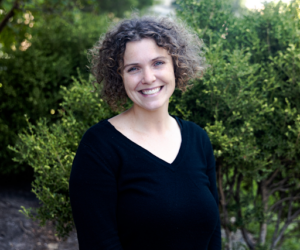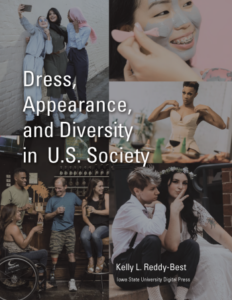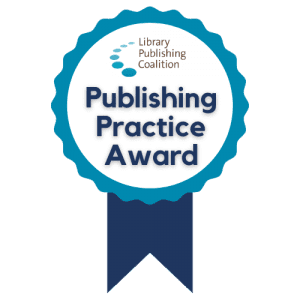June 16, 2023
Report on Library Publishing Forum 2023 Demographic Survey
By Nancy Adams
The development and use of this survey was based on the recommendations found in the Library Publishing Coalition’s (LPC) Roadmap for Anti-Racist Practice. This is a charge carried out by the Diversity, Equity, and Inclusion (DEI) Committee. The 2023 survey was made available to Library Publishing Forum (LPF) attendees in order to understand who attends the Forum and to help ensure we are building DEI into existing structures, registration forms, list of speakers, and improving workflows or resources. Moreover, this survey helps us make concrete improvements to the Forum and track demographic changes over time.
Notes
As all questions were optional, not all questions were answered. Therefore, numbers/counts do not always add up. There were minor changes to the survey this year in an attempt to be less restrictive to answer options. Rather than forcing attendees to select one of the options given to them, instead, some questions just provided an open response option. This also gave an opportunity for the respondent to fill in an answer that may not have been listed and to optionally identify as they saw fit. The respondent information includes both LPF attendees and presenters.
Summary of responses and comparisons
The 2023 LPF had 267 registered attendees, while 2022 had 330 registered attendees (246 were virtual while 84 were in-person).
We received 86 responses to the demographic survey from 2023 LPF attendees, which is roughly the same as the previous year (83 in 2022). The number of responses two years ago was 166 in 2021. The response rate in 2023 was 32%, compared to 28-30% in 2022 (a virtual/in-person combination), and 36% in 2021.
In 2023, most respondents fell into the 30-39 and 40-49 age ranges (28 people in each range), however, there was representation across all 20-60+ ranges. In comparison the majority of 2022 attendees were in the 30-59 age range.
For the 2023 survey, the question framing for race and ethnicity changed. This year’s results show 14% of respondents identified as Black, Indigenous, and People of Color (BIPOC), while 86% do not. In comparison, in 2022, 80% of respondents selected “White” as their racial/ethnic identifier.
Of the 85 responses related to gender, most respondents identified as a woman (80%). Other 2023 responses include identifying as a man, as using another term, or non-binary. Participants were also given an option to specify other terms in use and the option to provide further gender identity comments in the 2023 survey. A few additional terms or comments were provided.
Of the 52 responses related to having a disability, most respondents do not have a disability (63%). About 29% of respondents in 2023 identify as having a disability, compared to 17% in 2022. Both 2022 and 2023 respondents had the open response options that enabled explanation or alternative answers. Chronic illness were additional answers, as well as some noting that having a disability and stating so are culturally difficult. For the 2023 survey, the question framing for this added another prompt specific to neurodivergence based on feedback from the 2022 survey. In 2023, there were 55 responses to the question on identifying as neurodivergent. About 24% identify as neurodivergent, while 71% do not. There were also a few who might consider or do not know if they are neurodivergent. In 2022, only one respondent provided a neurodivergent identifier.
In 2023, employment status of respondents had a majority of full-time employment (92%), compared to 95% in 2022. Other statuses included full-time and student, part-time, student, part-time and student, and full-time and part-time combination. These other statuses were less in number in 2022 and included a retired status.
New to the 2023 survey was the open response question about any other identities. Less than 10 responses included the following: Queer, Bisexual, Immigrant, Child of immigrants, and works in North American but not from North America.
Final Comments
The 2023 LPF was entirely virtual, while the 2022 LPF was both in-person and virtual. Moving forward, virtual and in-person years will alternate. This aspect will need to be considered when evaluating demographic surveys in future years and the comparisons across years.
The Library Publishing Coalition’s DEI Committee members are incredibly appreciative of the many LPF participants who took the demographic survey during this year’s Forum.
We welcome LPF participants and LPC members to contact us at inclusion@librarypublishing.org if you have additional resources or feedback you would like to share to help us improve our work.

 Abbey Elder, the Open Access & Scholarly Communication Librarian at Iowa State University, worked with Dr. Reddy-Best to prepare her revised modules for import into the Digital Press’ open textbook publishing software, Pressbooks. This included training the author on how to organize content for import and highlighting the unique features of Pressbooks as a platform.
Abbey Elder, the Open Access & Scholarly Communication Librarian at Iowa State University, worked with Dr. Reddy-Best to prepare her revised modules for import into the Digital Press’ open textbook publishing software, Pressbooks. This included training the author on how to organize content for import and highlighting the unique features of Pressbooks as a platform.  The Publishing Practice Awards are designed to recognize and raise awareness of effective and sustainable library publishing practices. They highlight library publishing programs that exemplify concepts advanced in LPC’s
The Publishing Practice Awards are designed to recognize and raise awareness of effective and sustainable library publishing practices. They highlight library publishing programs that exemplify concepts advanced in LPC’s 